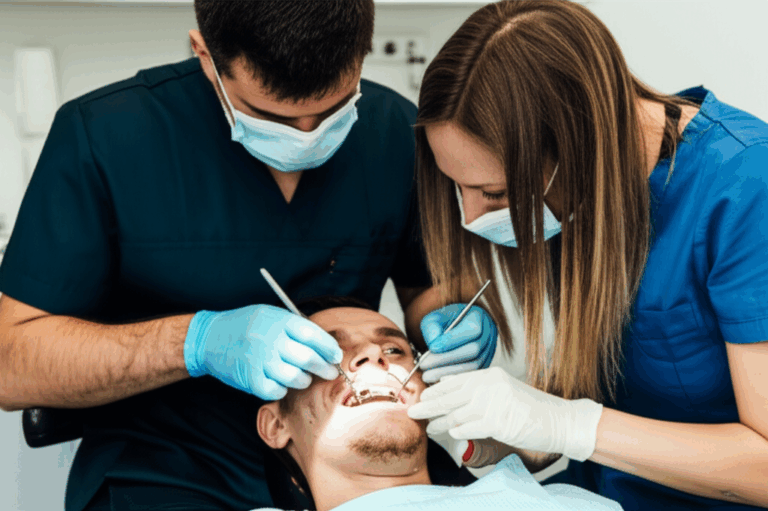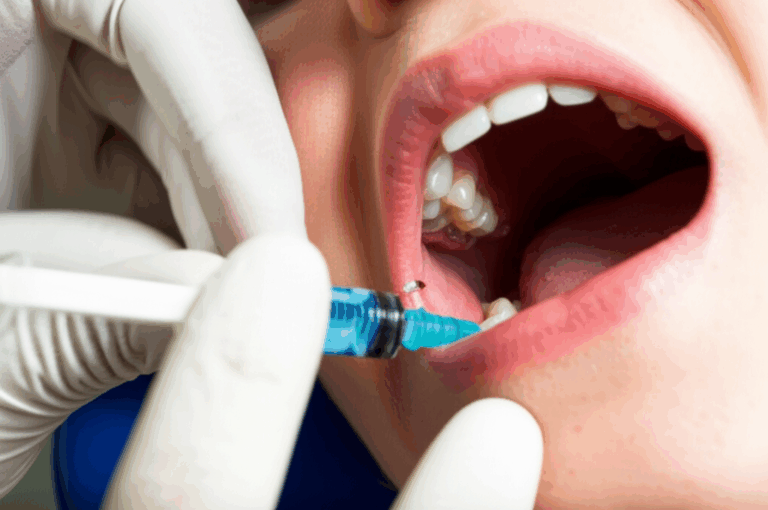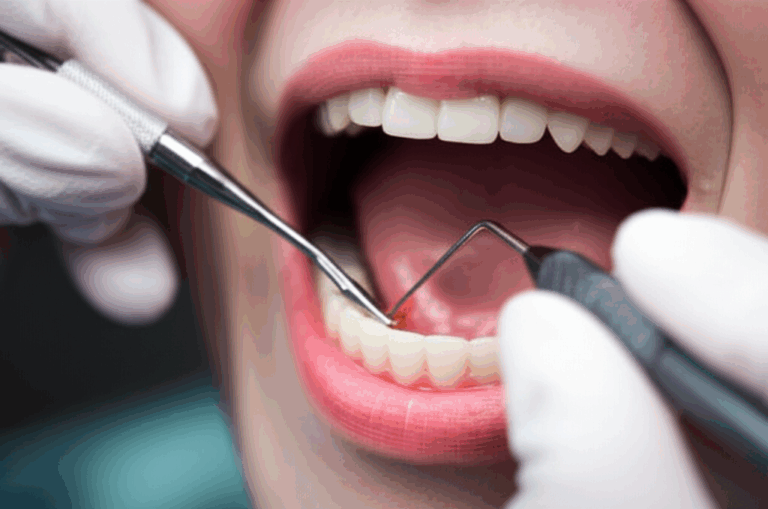
What’s the Difference Between a Dentist and a Dental Hygienist? Your Complete Guide to Who Does What in Your Dental Care
Ever sat in the dental chair and thought, “Why does one person clean my teeth and someone else checks them or fixes a problem?” You’re not alone. Many folks wonder exactly what’s different between a dentist and a dental hygienist. Let’s break it down in everyday terms, so your next visit makes sense and you feel in control of your dental health.
In This Article: Quick Navigation
- Understanding Your Dental Team: The Hook
- Dentist vs. Dental Hygienist—the Simple Science
- Who Is a Dentist? The Diagnosis and Treatment Leader
- Who Is a Dental Hygienist? The Prevention Specialist
- Dentist vs. Hygienist: Key Differences at a Glance
- When Do You See a Dentist or a Hygienist?
- Dentists and Hygienists: How They Work Together for Your Health
- Thinking About a Career? Dentistry vs. Dental Hygiene
- Summary Table: Dentist vs. Hygienist Comparison
- Your Healthy Takeaway: The Power of Two
Understanding Your Dental Team: The Hook
Imagine this: you’re in the dental chair, wearing a plastic bib. Someone carefully cleans your teeth, scrapes off buildup, and gives you some tips about better brushing. Later, a different person checks your X-rays, looks for cavities, and asks if anything hurts.
Who are these folks? And why do you see both?
It’s a good and common question. When you know the difference between dentist and hygienist, it’s easier to understand your visits—and you can look after your teeth better.
Let’s shine some light on what each person does in your dental team.
Dentist vs. Dental Hygienist—the Simple Science
Think of your dental office like a busy restaurant. The hygienist is the sous-chef—they wash and cut the vegetables and keep everything tidy (your teeth and gums!). The dentist is the head chef—they decide what meals to make (treatment plans) and cook up the tricky stuff (fixing teeth and more).
To put it simply:
Dentists find out what’s wrong, fix problems, and plan your treatment. Hygienists stop problems before they start, clean your teeth really well, and teach you how to care for your mouth.
They both matter! Here’s a peek at what each does:
- Dentists spot, treat, and manage diseases, cavities, sore teeth, or anything where your mouth needs fixing.
- Dental Hygienists help you not get those problems, clean off the gunk, and show you the best ways to look after your teeth every day.
This is why you need both. It’s teamwork for your teeth.
Who Is a Dentist? The Diagnosis and Treatment Leader
What Do They Do and How Do They Get There?
Dentists are like team captains for your mouth. They don’t just find problems—they make them better. Here’s what they do:
Main Jobs & What They Work On
- Finding dental problems: Cavities, gum issues, infections, even mouth cancer.
- Looking at X-rays and other tools to check your mouth.
- Making treatment plans just for you.
- Fixing teeth: With fillings, crowns, bridges, and implants. Sometimes they work with a skilled implant dental laboratory or crown and bridge lab for the best results.
- Doing root canals, pulling teeth, small surgeries.
- Prescribing medicine if you need it (like antibiotics or pain relievers).
- Sending you to a specialist (like for braces or gum surgery) if needed.
- Watching over all of your mouth health.
School and License
To become a dentist in the US:
- Bachelor’s degree (usually 4 years, often science subjects).
- Dental school: 4 more years (to get a DDS or DMD).
- Pass tests to get a license.
- Optional: Extra school (2–4 years) for specialty jobs.
- Always doing extra classes to stay up to date.
How Long Does It Take?
Usually about 8 years of school or even more if they become a specialist.
They know all the parts of your teeth and mouth, just like a car mechanic knows an engine.
Why Are Dentists Special?
- They can spot and fix any mouth problems.
- Can do the tricky jobs (root canals, oral surgery, braces, etc).
- Can own and run their office, choose the team, and give out medicine.
Who Is a Dental Hygienist? The Prevention Specialist
What Do They Do and How Do They Get There?
Dentists are like doctors, but hygienists are your “prevention pros” or oral health coaches. Their job is to help you avoid needing dental work later.
Main Jobs & Everyday Tasks
- Deep teeth cleanings—scraping off soft stuff (plaque) and hard build-up.
- Cleaning under the gums if gum disease is starting.
- Taking X-rays and sometimes looking at them too.
- Putting on fluoride or sealants to keep teeth strong.
- Checking for early signs of mouth or gum trouble.
- Teaching you the right way to brush, floss, and eat for healthy teeth.
- Asking about your health history to spot risks.
- Sometimes giving shots to numb your gums (in some states).
- Working closely with the dentist, showing them any concerns.
School and License
To become a hygienist:
- Associate’s degree (2–3 years) or Bachelor’s degree (4 years) in Dental Hygiene.
- Pass tests to become a Registered Dental Hygienist (RDH).
- Always keep learning new things in hygiene.
How Long Does It Take?
Most hygienists study 2–4 years.
It’s a lot of hands-on stuff—like learning how to be great at prepping and caring for teeth.
Why Are Dental Hygienists Important?
- They stop problems before they start.
- See their patients often for routine cleanings.
- Give gentle, detailed cleanings and cheer you on for better habits at home.
- Spot problems while they’re small so they’re easier (and cheaper!) to fix.
Dentist vs. Hygienist: Key Differences at a Glance
Skip straight to the point with this comparison:
| Feature | Dentist | Dental Hygienist |
|---|---|---|
| Main Job | Find & fix problems; do procedures | Prevent problems; keep teeth clean |
| Schooling | ~8 years (Bachelor’s + DDS/DMD) | 2–4 years (Associate’s/Bachelor’s) |
| License Needed | Dentist’s license | RDH state license |
| What They Do | Fillings, surgeries, crowns, implants, etc. | Cleanings, gum care, X-rays, teach patients |
| What They Can’t Do | N/A | Can’t fill cavities or do big procedures |
| How Much They Make (US) | ~$170,000–$200,000+ | ~$80,000–$90,000 |
| Where They Work | Offices, clinics, hospitals, specialty places | Clinics, sometimes schools, community centers |
Note: Every state is a little different, but dentists always do the check-up/fixing, and hygienists always focus on cleanings and teaching.
When Do You See a Dentist or a Hygienist?
A lot goes on during your visit. So who should you see—and when?
See a Dental Hygienist for:
- Regular cleanings (about every 6 months)
- Checking and cleaning early gum disease
- Fluoride and sealant treatments
- Quick checks for cancer or gum health
- One-on-one advice: brushing, flossing, food choices
- X-rays and health updates
See a Dentist for:
- Pain, swelling, or any mouth injury
- Cavities, broken, or lost teeth
- Fixes like fillings, crowns, bridges, or implants
- Tooth extractions or root canals
- Full checkups
- Emergencies
- Referrals to specialists (braces, gum surgery, etc.)
Think:
Your hygienist is like your coach—keeping your mouth in shape. Your dentist is your expert fixer for problems big or small.
Dentists and Hygienists: How They Work Together for Your Health
No one person does it all. Healthy teeth are a result of teamwork!
What Does Teamwork Look Like?
- Step 1: The hygienist welcomes you, cleans your teeth, and points out anything odd.
- Step 2: The dentist looks at your X-rays, checks your teeth, and decides if you need any repairs or next steps.
- Step 3: If work is needed, the dentist might team up with a dental ceramics lab or zirconia lab to make crowns or fake teeth. This shows teamwork sometimes even goes beyond your office!
- Step 4: The hygienist helps you remember your care plan and motivates you until your next visit.
Why Is This Good for You?
- Faster appointments: Cleaning and checkup in one go.
- Better results: Two pairs of trained eyes.
- Ongoing care: Hygienists keep you healthy, dentists fix problems.
- Stress-free: Friendly hand-off makes visits smoother.
Bottom line: Dentists and hygienists both have their own skills. Together, they give you the best shot at healthy teeth for life.
Thinking About a Career? Dentistry vs. Dental Hygiene
If you’re looking for job ideas, which sounds right for you?
What Each Day Looks Like:
- Dentist: Figures out and fixes mouth problems, does hands-on work, leads a team, maybe runs a business.
- Hygienist: Focuses on helping people stay healthy, gives lots of advice, spends more time with patients, less paperwork.
Studying and School
- Dentist: Lots of study—8+ years, but pays well and comes with a lot of responsibility.
- Dental Hygienist: 2–4 years. Less debt, lots of jobs out there, often good hours for family or other needs.
Pay and Jobs
- Dentists: Median around $170,000–$200,000+ in the US. Job growth about 4%.
- Hygienists: Median about $80,000–$90,000. High demand: about 9% job growth.
What Fits You Best?
- Like figuring things out, being the leader, tackling hard cases? Go for dentistry.
- Like prevention, guiding others, having more regular routines? Dental hygiene may be for you.
Both paths help people and can change lives.
Summary Table: Dentist vs. Hygienist Comparison
Here’s the big picture, side by side:
| Aspect | Dentist | Dental Hygienist |
|---|---|---|
| Finding Problems | Yes | Helps, sends to dentist |
| Making Treatment Plans | Yes | No (follows dentist’s plan) |
| Doing Fillings, Crowns | Yes | No |
| Pulling Teeth, Implants | Yes | No |
| Regular Cleanings | Sometimes (not often) | Yes |
| Deep Gum Cleanings | Sometimes, but usually hygienist | Yes |
| Teaching Patients | Yes, but usually quick | Yes, main part of job |
| Can Give Medicine | Yes | Usually no |
| X-rays | Orders & explains | Takes them, sometimes explains |
| Years in School | ~8 years | 2–4 years |
| Needed License | Dentist’s license | RDH license |
| Median Pay (US) | ~$170,000–$200,000+ | ~$80,000–$90,000 |
| Job Growth | ~4% (2022–32) | ~9% (2022–32) |
| Where They Work | Clinics, private, hospitals | Clinics, public health, schools sometimes |
| How Much Freedom? | A lot (can run the place) | Medium (works with dentist, but still licensed) |
Your Healthy Takeaway: The Power of Two
Wondering if you really need both? Here’s why:
- Dentists and hygienists both matter a lot.
- Dentists: Find and fix problems; plan, treat, manage your care.
- Dental Hygienists: Help you avoid problems, coach you about cleaning, and spot small problems early.
- Together, you save time, money, and avoid toothaches down the road.
What to Do for Your Next Visit
- Keep up regular cleanings—don’t skip the hygienist!
- See your dentist quickly for pain or something strange.
- Ask questions. They’re there to help.
- Try their tips for brushing, flossing, and eating—they really work.
Taking care of your mouth is like looking after a car; routine checkups (thanks, hygienist!) and fixing problems quickly (that’s your dentist!) keep you smiling longer.
Your dental team is like your pit crew for a winning smile.
Bonus: When Your Smile Needs Something Extra
Sometimes it takes more experts to get your best smile.
If you need a crown, bridge, dentures, veneer, or another special fix, your dentist might work with a top-notch china dental lab or use [3d dental lab] technology to make sure your new teeth fit and look real.
Want to know more about your options? Check out our quick guides on veneers or dental implants.
Frequently Asked Questions
What does RDH mean?
RDH is Registered Dental Hygienist—a person who finished dental hygiene school and passed the tests.
Can a hygienist fill a cavity or pull a tooth?
No. Only dentists can do fillings, pull teeth, and carry out big jobs like this.
Do I need both for my care?
Yes. Seeing a hygienist often means problems get caught early; dentists fix anything that needs fixing.
Which job spends more time with patients?
Both talk to patients, but hygienists usually see people more often and spend more time teaching at each visit.
How do dentists and hygienists work together?
They share care, so no problem gets missed and you get complete treatment.
Trustworthy Sources
- American Dental Association (ADA)
- American Dental Hygienists’ Association (ADHA)
- US Bureau of Labor Statistics (BLS): Dentists
- US Bureau of Labor Statistics (BLS): Dental Hygienists
Your Smile, Your Team, Your Choice
Dentists and dental hygienists are both important for your teeth. Now that you know who does what, you can get more out of every visit—and thank the right person!
Visit every six months, ask questions, and keep up teamwork for a smile that lasts.
Ready to look after your teeth? Book your cleaning today or talk to your dentist about any worries. This is the first step to your happiest, healthiest smile ever!








